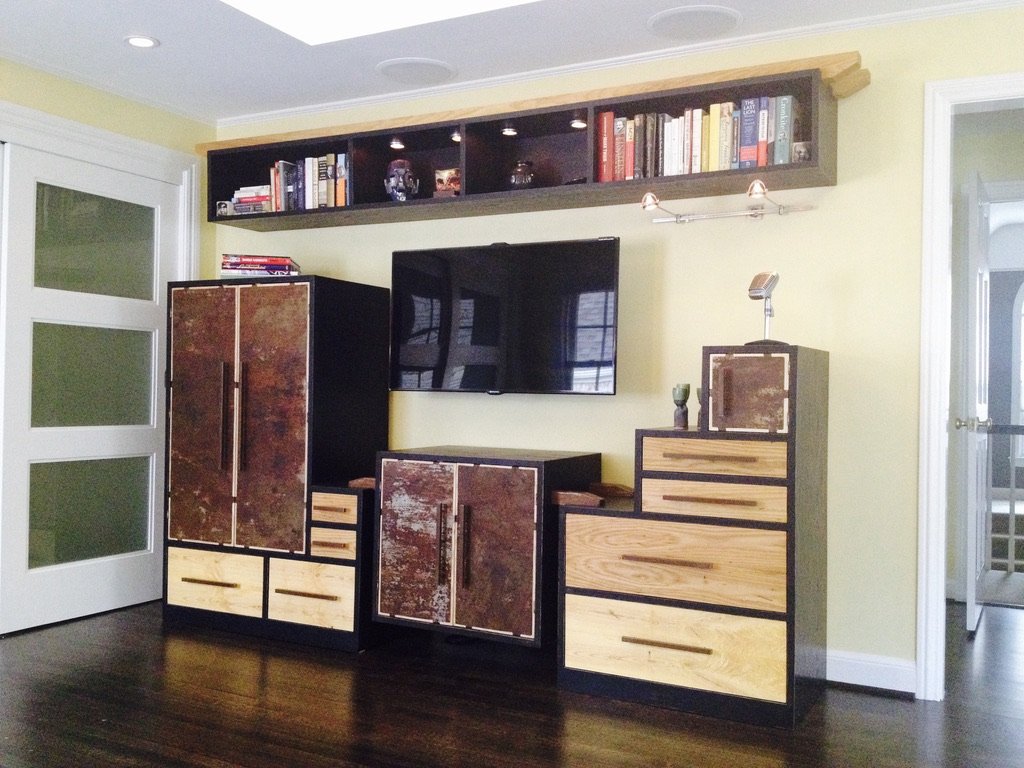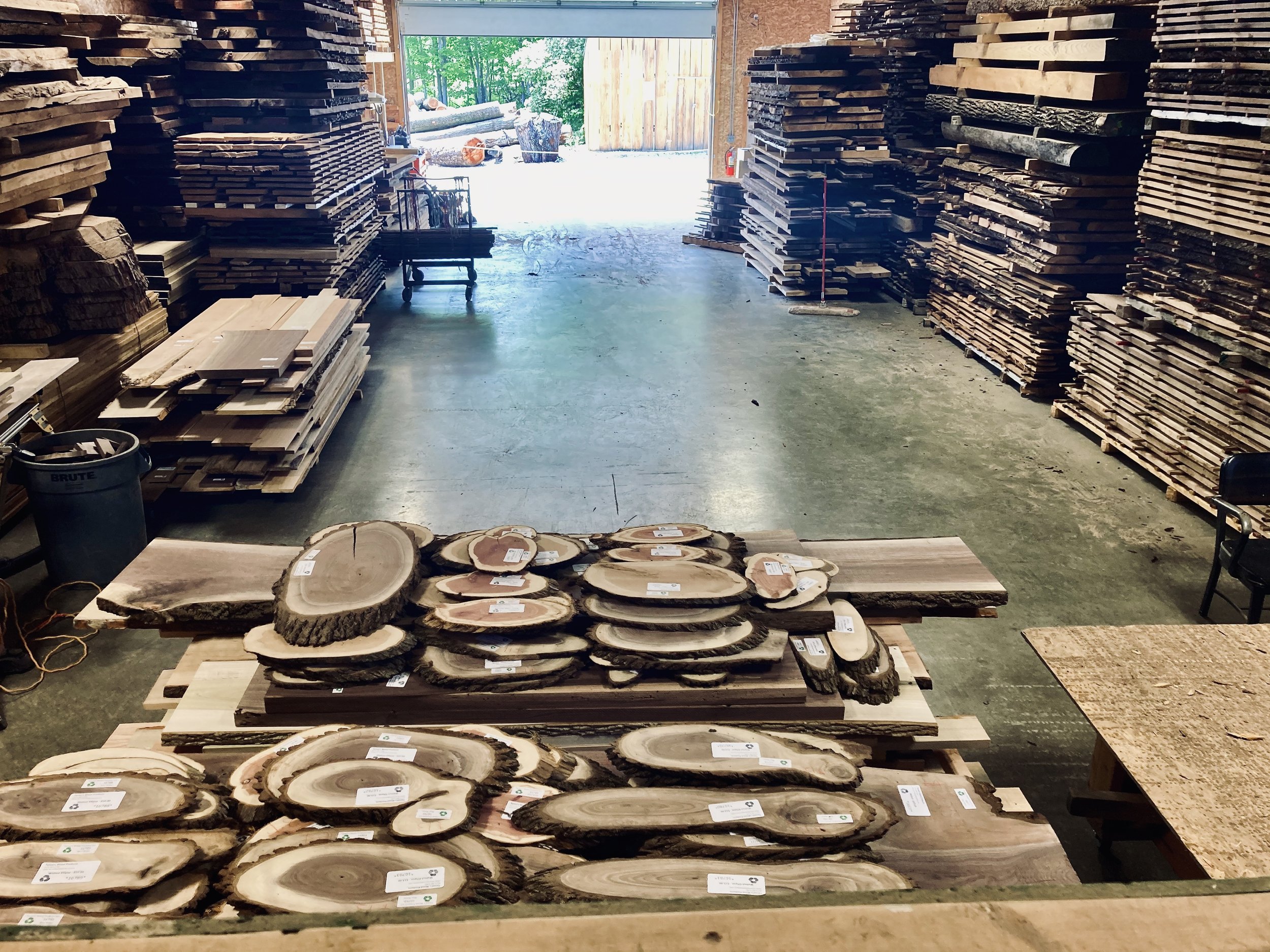Urban Ashes Redirects Wood Waste
When a tree falls in a forest, nature reclaims it and stores its embodied carbon. If a tree falls in a city, it follows a different life cycle. In Ann Arbor alone, over 600 trees fall or are removed annually. Most are turned into firewood, mulch, or hauled to a landfill leading to their embodied carbon being released as the equivalent of 1.1 billion tons of CO2 emissions.
While trees that must come down in cities are being underutilized, trees are constantly being harvested from forests to supply manufacturers and lumberyards. But it is challenging to connect the urban wood supply chain to manufacturers. Most manufacturers source their wood from domestic forests or get their wood imported, larger supply chains benefiting from scale. One company started closing this gap with an innovative business model.
The Solution – A Triconomy Model
By Urban Ashes
Urban Ashes in Ann Arbor, Michigan is a furniture and picture frame company that uses urban wood salvaged from local trees. This is wood grown along Michigan's streets and in our yards, and parks.
The company employs what they call the Triconomy model. This means Urban Ashes is committed to focusing on both social and environmental concerns as their circular-economy business grows. They aim to maximize social impact and economic diversity by creating meaningful work, desirable careers, and new opportunities for the formerly incarcerated.
Emerald Ash Borer Kill Media Cabinet and Wardrobe by Paul M. Hickman Inc.
Urban Ashes empowers the community to divert their fallen urban trees from the waste stream by using this often-wasted resource. The company identifies and establishes missing systems, networks, markets, and businesses with municipalities so they can meet their net-zero and sustainability goals. They also partner with designers, manufacturers, general contractors, and architects to further develop the urban wood utilization market. They coordinate between all players to ensure Ann Arbor’s and Washtenaw County’s fallen urban trees are repurposed.
Reclaiming wood from fallen trees and turning it into new products is environmentally beneficial. Wood is a renewable raw material that continues to store carbon even after the tree has been cut down. Wood reclamation can be zero-waste since bi-products from every stage of the process can be re-purposed - sawdust is used at farms or for fuel; rough wood cuts get made into pallets; and bark can be used for landscaping materials like mulch. Wood is durable and it scores well in life cycle assessments for its renewability, carbon sequestration, low embodied carbon, and several other factors.
The company aims to continue the development of this market and ultimately establish a log recovery program, a sorting yard, and operations to mill, kiln dry, market and retail products manufactured from local wood waste. This plan will also be used to expand to other communities across the state and region.
THE RESULTS
Tevol’s Wood Products
In 2022, Urban Ashes joined the NextCycle Michigan Food, Liquids, and Organic Waste Systems (FLOWS) Accelerator Track cohort to continue developing their business model and expand the wood reclamation market. During programming, they worked with industry experts to articulate a viable business model with stable revenue. They worked to identify and create a list of network connections and key players in the wood waste space within Ann Arbor and Washtenaw County.
In September 2022, Urban Ashes marked the first time a fallen street tree in the City of Ann Arbor would be part of the Urban Ashes Circular Urban Wood Triconomy. Currently, they have eight other cities in three other states in the pipeline for urban wood reclamation utilizing the business model vetted in the NextCycle Michigan Accelerator Track.
Learn more at urbanashes.wixsite.com/urbanashes-2021.



